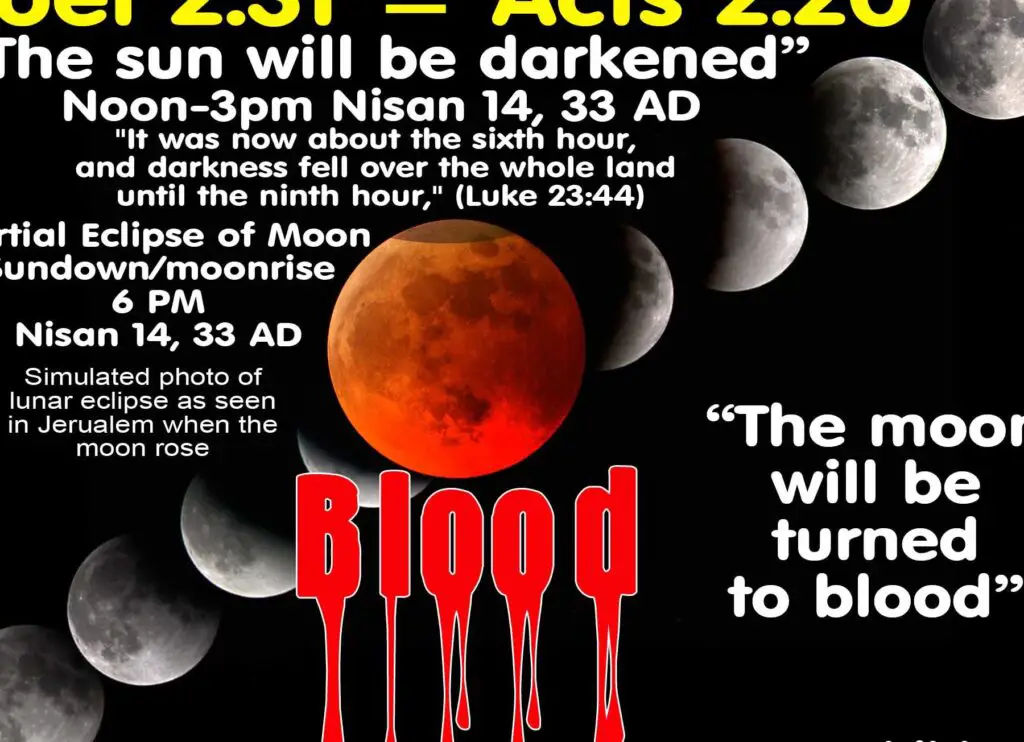What Does The Blood Moon Mean In The Bible
Throughout history, celestial phenomena have sparked curiosity, fear, and reverence among humankind. Among these phenomena, the Blood Moon, characterized by its striking reddish hue during a total lunar eclipse, holds particular significance in biblical literature. The profound implications of the Blood Moon can be traced through various verses in the scriptures, inviting a rich tapestry of interpretation and meaning that resonates with both theologians and laypersons alike.

In biblical accounts, the Blood Moon is often perceived as more than a mere astronomical event. It is emblematic of divine messages and warnings that reflect God’s intimate connection with the earthly realm. From the writings of the Old Testament to the prophecies presented in the New Testament, the Blood Moon serves as a symbol of impending transformation, divine judgment, and the fulfillment of prophetic dreams.
### Historical Context
To comprehend the significance of the Blood Moon in the Bible, it is essential to delve into its historical context. During ancient times, lunar cycles were meticulously observed. The Israelites, for instance, used the moon to mark their calendar, signifying festivals, agriculture, and religious observances. The appearance of a Blood Moon would have been interpreted with profound seriousness, often linked to pivotal events such as national crises or divine interventions.
One cannot overlook the prophetic connections made by the prophet Joel, who states in Joel 2:31, "The sun shall be turned to darkness, and the moon to blood, before the great and terrible day of the Lord comes." This foreboding assertion positions the Blood Moon as a harbinger of monumental change, urging believers to remain vigilant and discerning. The symbolism here extends beyond fear; it is an exhortation to reflect on one's life and relationship with the divine.
### Theological Implications
The theological implications of the Blood Moon are intricate. Biblical scholars often interpret this phenomenon as a metaphor for God’s sovereignty over creation. By controlling celestial bodies, the Almighty underscores His power and authority. A Blood Moon can, therefore, be seen as a divine signal related to God's judgment and the promise of restoration. It prompts reflections on repentance and the urgent need for spiritual awakening within the faith community.
In Christian eschatology, the notion of the Blood Moon also aligns with visions of the end times. Revelatory texts like Revelation articulate scenarios where cosmic disturbances signal significant historical epochs. The imagery of a blood-red moon resonates with the ultimate promise of renewal, where believers anticipate Christ's return and restoration of all things. Thus, the Blood Moon becomes a call to readiness and hope amidst unfolding tribulations.
### The Cultural Relevance of the Blood Moon
In contemporary society, the Blood Moon has transcended its biblical roots, emerging as a focal point of interest in popular culture, astrology, and spiritual symbolism. Many individuals perceive lunar eclipses as opportunities for spiritual insight, contemplating personal transformations and revelations. The act of observing a Blood Moon often ignites communal gatherings, creating avenues for shared experience and reflection.
However, while these cultural interpretations can be enriching, they may sometimes dilute the profound biblical significance. A balanced approach advocates for an appreciation of both scientific wonder and spiritual depth, allowing individuals to embrace the entirety of what a Blood Moon represents. The challenge lies in navigating these interpretations while remaining anchored in the biblical narrative.
### Practical Reflections on the Blood Moon
Understanding the significance of the Blood Moon in the Bible invites practical reflection for believers today. It prompts introspection regarding one’s spiritual health and relationship with the Creator. When facing personal or communal crises, observing such celestial events can stimulate prayers of gratitude, repentance, and hope. How can the Blood Moon encourage us to reach out to those in need, offering compassion and support during tumultuous times?
A Blood Moon also serves as an opportunity for education—both about the cosmos and the heart of God. Engaging in discussions about the science behind lunar eclipses can enhance appreciation of the Creator’s handiwork. Yet, it is equally crucial to delve into scripture, fostering an understanding of the symbiotic relationship between earthly events and divine orchestration.
What can we learn from the lives of biblical figures who witnessed celestial occurrences? They teach us that, irrespective of chaos surrounding them, a steadfast faith anchored in God’s promises prevails. The Blood Moon, therefore, becomes an emblem of hope for those awaiting fulfillment and resolution in their lives.
### Conclusion: Embracing the Meaning of the Blood Moon
As we reflect on the significance of the Blood Moon in biblical texts, we encounter a multiplicity of meanings that echo through time. This cosmic event, imbued with spiritual, cultural, and theological connotations, beckons believers to engage deeply with their faith. It is a reminder of God’s omnipotence and a call to prepare our hearts for the work ahead.
Ultimately, the Blood Moon encourages us to look beyond the surface, to explore the depths of its meaning within our spiritual journeys. The fusion of science, spirituality, and community invites a richer appreciation of our shared human experiences. As we gaze upon the Blood Moon and in its eerie glow, may we find not only wonder but also the inspiration to act in faith and love. The call is clear: be vigilant, be expectant, and never cease to seek the divine in every phenomenon that graces our skies.
Post a Comment